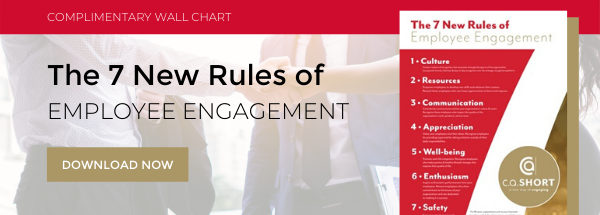Reducing Healthcare Costs and Increasing Health and Wellness
With increasing health concerns and rising insurance premiums, employers are being asked to find solutions to help consolidate healthcare related costs. Many organizations have begun to include wellness programs into organizational strategies. Used as a tool to increase awareness of employee health and wellness concerns, these type of programs encourage healthy lifestyle changes such as exercise, smoking cessation, and healthy food choices. This raised awareness allows employees to make positive behavior modification that affect preventable health conditions. By incorporating wellness programs into an organization's overall employee engagement strategy, companies are able to promote work-life integration, recognize employees who make positive and healthy lifestyle changes, and ultimately increase the bottom line.
 When employees feel that their employer genuinely cares for and has an interest in them personally, they are more engaged in the workplace, and health care costs are contained.
When employees feel that their employer genuinely cares for and has an interest in them personally, they are more engaged in the workplace, and health care costs are contained.
An HR win, right?
The Influence of EEOC, ADA, and ACA in Wellness Programs
Not so fast. Enter the Equal Employment Opportunity Commission (EEOC), the Americans with Disabilities Act (ADA) and the Affordable Care Act (ACA). All three of these agencies hold a strong position concerning wellness programs. The EEOC has proposed a rule that clarifies that wellness programs are permitted under ADA, but those programs cannot discriminate based on disability. Individuals with disabilities must be provided with reasonable accommodations that allow them to participate in wellness programs and to earn whatever incentive an employer offers. Employers must know, understand, and eliminate existing barriers to their wellness programs. A disability is not an inability; employers are charged with the task of creating wellness programs offering opportunities of optimal growth for everyone.
For example, if attending a training seminar on stress management is part of your organization's wellness program, and you have an employee who is hearing impaired, your organization would need to hire a sign language interpreter, assuming the cost does not put an undue hardship on the employer to enable the employee to participate in the program.
The EEOCs Proposed Wellness Initiative
The EEOC has a proposition on employee wellness programs stating that wellness programs must be voluntary; employees that do not choose to participate in such programs must not lose out on the financial incentives that employees that do opt to participate, and they cannot require individuals to disclose personal health information in order to participate. Employees must not be denied medical benefits if they do not choose to participate in the program.
When implementing and administering wellness programs, employers must treat sensitive information with respect and adhere to HIPAA guidelines ensuring that they communicate the following:
- What information will be collected
- With whom it will be shared
- How it will be used
- How it will be safeguarded
Medical information collected as a part of a wellness program may be disclosed to employers, only in aggregate form that does not reveal the employee's identity. The public had until June 19th to comment on the proposed changes. Until a final ruling has been made, employers are not required to comply with the proposed rule. However, many of the requirements detailed in the proposed rule are already requirements under the law.
At C. A. Short, we are your partner for increased employee engagement resulting in increased performance outcomes to grow your bottom line. Our process and research-based platform help you engage your team in order to increase your bottom line, motivate your staff to the benefit of the entire organization and reward your people for the positive changes they make. To request a Complimentary Consultation, please click here.










SHARE